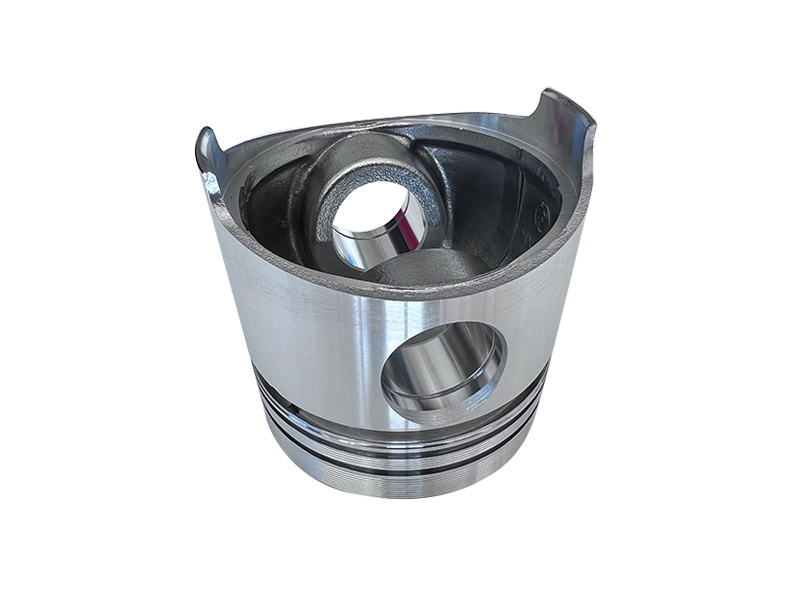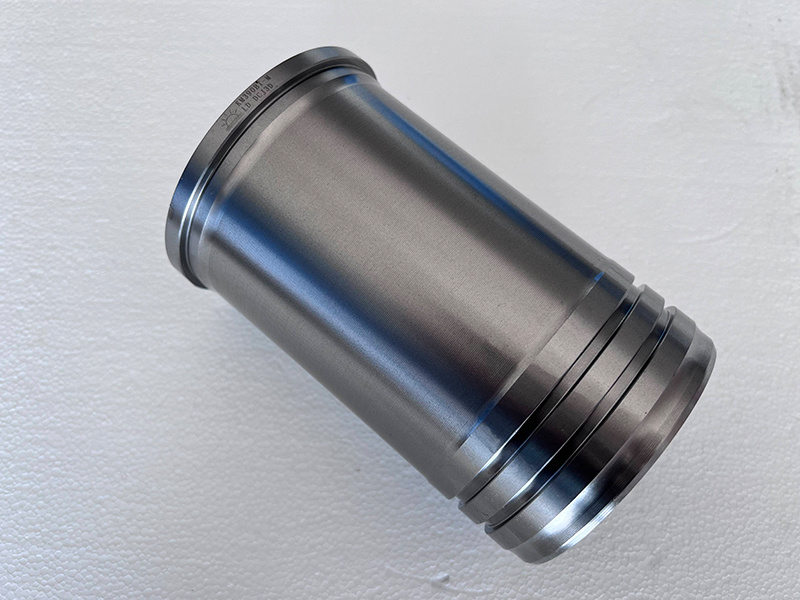Unlocking Efficiency: How Precision Machinery Processing Transforms Agricultural Practices
Sep 16,2025
Unlocking Efficiency: How Precision Machinery Processing Transforms Agricultural Practices
Table of Contents
Introduction to Precision Machinery in Agriculture
The Importance of Precision in Agricultural Practices
Technological Advancements in Agricultural Machinery
Benefits of Precision Machinery Processing
Increased Efficiency and Productivity
Co

Unlocking Efficiency: How Precision Machinery Processing Transforms Agricultural Practices
Table of Contents
- Introduction to Precision Machinery in Agriculture
- The Importance of Precision in Agricultural Practices
- Technological Advancements in Agricultural Machinery
- Benefits of Precision Machinery Processing
- Increased Efficiency and Productivity
- Cost Savings Through Precision Farming
- Sustainability and Environmental Impact
- Types of Precision Machinery Used in Agriculture
- Implementing Precision Machinery in Farming
- The Future of Precision Machinery in Agriculture
- Frequently Asked Questions (FAQs)
- Conclusion
Introduction to Precision Machinery in Agriculture
In the dynamic world of agriculture, unlocking efficiency means embracing **precision machinery processing**. This method integrates advanced technology into farming practices, enabling farmers to produce more with less. As the global population continues to rise, the demand for efficient agricultural solutions becomes increasingly critical. In this article, we delve into how precision machinery processing is revolutionizing agricultural practices, enhancing productivity, and promoting sustainable farming.
The Importance of Precision in Agricultural Practices
Precision in agriculture refers to the use of technology to manage variations in the field, ensuring that crops receive the specific care they need. This targeted approach not only maximizes yield but also minimizes waste and environmental impact. By adopting precision practices, farmers can tailor their techniques to suit the specific needs of their crops, thereby enhancing overall farm management.
Technological Advancements in Agricultural Machinery
The agricultural sector has witnessed a surge in technological advancements, paving the way for precision machinery. Modern farming equipment now incorporates GPS guidance systems, sensors, and data analytics, allowing farmers to make informed decisions. These innovations facilitate real-time monitoring of crops, soil health, and weather conditions, ensuring that farmers can respond promptly to any issues that arise.
Benefits of Precision Machinery Processing
Precision machinery processing offers a multitude of benefits that can transform agricultural practices.
Increased Efficiency and Productivity
One of the most significant advantages of precision machinery is the **increased efficiency** it provides. Automated systems reduce the time and labor required for farming tasks, allowing farmers to cover larger areas in a shorter period. This efficiency translates to higher productivity, enabling farmers to meet the growing food demand without expanding their land.
Cost Savings Through Precision Farming
Implementing precision machinery can lead to substantial **cost savings**. By using resources more effectively, farmers can minimize waste and lower input costs. For instance, precision irrigation systems ensure that water is delivered only where needed, reducing water usage and associated costs. Furthermore, targeted application of fertilizers and pesticides minimizes excess usage, leading to lower chemical expenditures.
Sustainability and Environmental Impact
Precision machinery not only enhances productivity and reduces costs but also promotes **sustainability**. By utilizing technologies that minimize resource waste, farmers can adopt practices that are less harmful to the environment. This approach mitigates the overuse of chemicals, protecting soil health and reducing runoff into water bodies. As consumers increasingly demand sustainable practices, adopting precision machinery aligns with these expectations.
Types of Precision Machinery Used in Agriculture
The landscape of precision machinery is diverse, with various types of equipment designed to enhance specific aspects of farming operations.
Drones and Aerial Imaging
Drones have become a game-changer in agricultural monitoring. Equipped with high-resolution cameras and sensors, they provide aerial imaging that helps farmers assess crop health, monitor plant growth, and detect pest infestations. This technology allows for timely interventions, ultimately leading to better crop management.
Automated Machinery and Robotics
Automation in agriculture is revolutionizing labor-intensive tasks. **Robotic systems** can perform planting, weeding, and harvesting with minimal human intervention. These machines enhance efficiency and reduce labor costs, allowing farmers to focus on strategic decision-making rather than routine tasks.
Precision Planting Equipment
Precision planting equipment ensures that seeds are sown at the optimal depth and spacing. This technology maximizes germination rates and establishes a strong foundation for future crop development. By using these systems, farmers can significantly improve overall yield quality.
Implementing Precision Machinery in Farming
Adopting precision machinery requires careful planning and execution. Farmers should start by assessing their current operations and identifying areas where precision technology can add value. Investment in training is also crucial to ensure that staff are equipped to operate and maintain new equipment effectively. Collaborating with technology providers can facilitate a smoother transition, enabling farmers to fully leverage the capabilities of precision machinery.
The Future of Precision Machinery in Agriculture
The future of precision machinery in agriculture looks promising. As technology continues to evolve, we can expect even more sophisticated solutions that further enhance efficiency. Innovations such as artificial intelligence (AI) and machine learning will enable predictive analytics, allowing farmers to anticipate challenges and make proactive decisions. As these technologies become more accessible, the entire agricultural sector stands to benefit from increased productivity and sustainability.
Frequently Asked Questions (FAQs)
1. What is precision machinery processing in agriculture?
Precision machinery processing refers to the use of advanced technology and equipment to manage agricultural practices with higher accuracy and efficiency.
2. How does precision agriculture enhance sustainability?
Precision agriculture minimizes resource waste and reduces the environmental impact of farming through targeted and efficient use of inputs.
3. What types of technology are used in precision machinery?
Technologies include drones, automated machinery, sensors, GPS systems, and data analytics tools designed to optimize farming practices.
4. Can precision machinery help reduce farming costs?
Yes, precision machinery reduces input costs through efficient resource management, minimizing waste and overuse of fertilizers and pesticides.
5. How can farmers start implementing precision machinery?
Farmers should assess their current operations, identify areas for improvement, and invest in training and technology to facilitate a successful transition.
Conclusion
The transformation of agricultural practices through precision machinery processing is not just a trend; it's a necessity for the future of farming. By embracing this advanced technology, farmers can unlock efficiency, boost productivity, and contribute to a more sustainable agricultural landscape. As we move forward, the integration of precision machinery will play a pivotal role in meeting global food demands while ensuring environmental stewardship. The shift to precision agriculture is indeed a step towards a smarter and more efficient future for farming.
TAG:
Recent News
Mastering Agricultural Machinery: A Deep Dive into Engine Speed Control Shaft Mechanics
Mastering Agricultural Machinery: Understanding Engine Speed Control Shaft
Table of Contents
1. Introduction to Engine Speed Control Shaft in Agricultural Machinery
2. Importance of Engine Speed Control Shaft in Agricultural Machinery
3. How Engine Speed Control Shaft Works
4. Types of Engine Speed Control Shafts
4.1. Mechanical Control Shafts
4.2. Electronic Control Shafts
5. Common Issues with E


